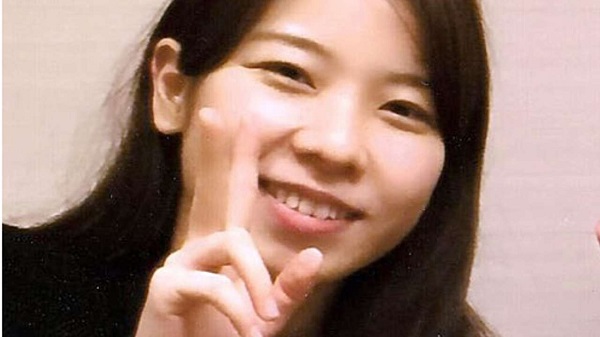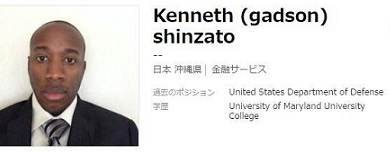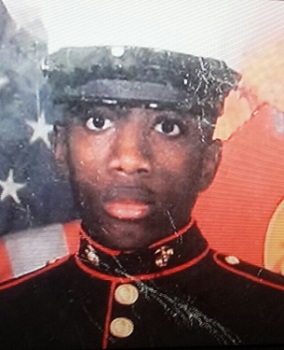Lost in Translation: U.S. Forces and Crime in Japan
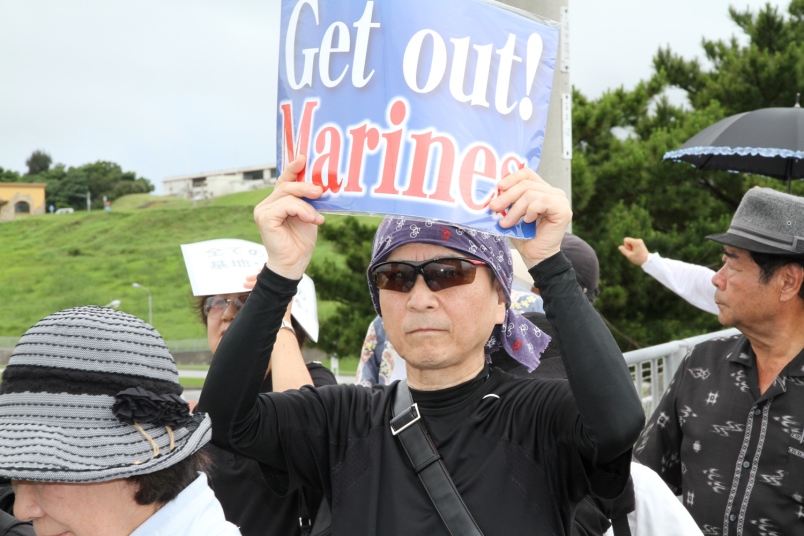 A recent spate of crimes committed by United States Forces in Japan (USFJ) personnel has been widely reported in both Okinawan and Mainland Japan media. Though not completely overshadowing U.S. President Barack Obama's historic visit to Hiroshima, the crimes have put an unwanted and less than flattering focus on the American military presence in Japan.In order for the U.S.-Japan Alliance to significantly function as a deterrence that contributes to Japan's security and peace and stability in the Asia-Pacific region, it is paramount to base U.S. Forces in Japan.The importance of having USFJ military and civilian personnel based in Japan has been demonstrated throughout the years. Maintaining a posture in Japan and its surrounding areas during peacetime enables the USFJ to rapidly and expeditiously respond to emergencies. As noted in the report, Japan-U.S. Alliance Management: Natural Disaster Response Cooperation with the U.S. Forces in Japan, having the USFJ on Okinawa presents its own challenges:
A recent spate of crimes committed by United States Forces in Japan (USFJ) personnel has been widely reported in both Okinawan and Mainland Japan media. Though not completely overshadowing U.S. President Barack Obama's historic visit to Hiroshima, the crimes have put an unwanted and less than flattering focus on the American military presence in Japan.In order for the U.S.-Japan Alliance to significantly function as a deterrence that contributes to Japan's security and peace and stability in the Asia-Pacific region, it is paramount to base U.S. Forces in Japan.The importance of having USFJ military and civilian personnel based in Japan has been demonstrated throughout the years. Maintaining a posture in Japan and its surrounding areas during peacetime enables the USFJ to rapidly and expeditiously respond to emergencies. As noted in the report, Japan-U.S. Alliance Management: Natural Disaster Response Cooperation with the U.S. Forces in Japan, having the USFJ on Okinawa presents its own challenges:
The presence of U.S. military bases on Okinawa also poses a set of challenges for civilian and military emergency planners. First, U.S. military forces not only will be first responders in the aftermath of a natural disaster, but also will likely be disaster victims. Second, there are tens of thousands of U.S. military family members and associated personnel on Okinawa who might also become victims in the event of a natural disaster. Third, there is an anti-base grassroots movement in Okinawa that opposes any form of cooperation between local or prefectural government entities and U.S. base personnel. This anti-base sentiment enjoys broad-based support on Okinawa and creates a political problem for elected officials who seek to develop closer ties with U.S. military commands on Okinawa.
Article 5 of the Japan-U.S. Security Treaty stipulates the obligation of the United States to defend Japan. Article 6 of the treaty is the vehicle that allows the stationing of U.S. military personnel in Japan. To carry out a myriad of responsibilities, all branches of the U.S. military, including those in Japan, are functionally integrated. The USFJ acts as the tip of the spear in cooperation with the Japanese Self Defense Forces when responding to armed aggression to Japan. Article 16 of the treaty stipulates that U.S. armed forces, the civilian component, and their dependents respect the laws of Japan.
[ad]
The Suitcase Murder
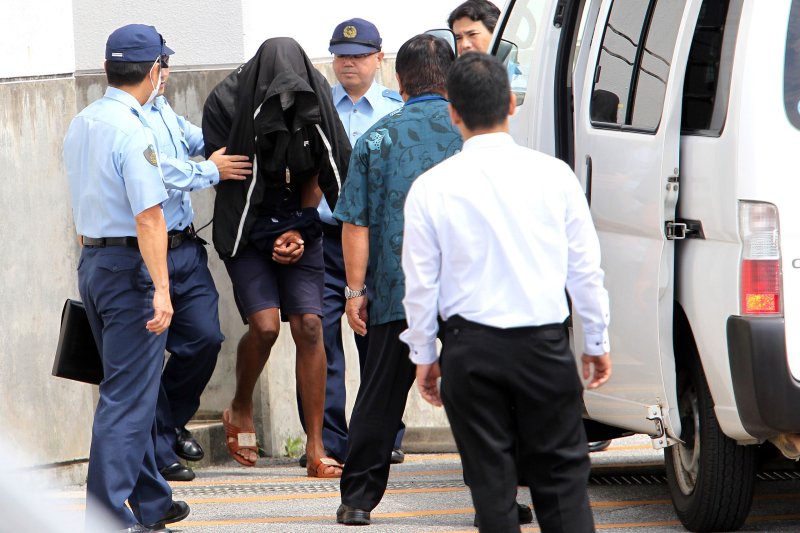 Kenneth Gadson-Shinzato, a U.S. Marine Corps veteran married to a local Okinawan woman, worked at Mediatti Broadband Cable's Okinawa office located on Kadena Air Base. Gadson-Shinzato and his wife are the parents of a two-year-old. The family had recently moved into a house provided by Mrs. Shinzato's father.Gadson-Shinzato was arrested and charged with the illegal disposal of a body in connection with the April 28th disappearance of the 20-year-old Ms. Rina Shimabukuro. Gadson-Shinzato was rearrested on May 19, 2016 and subsequently charged with her rape and murder. As reported in The Daily Beast article, The Suitcase Murder Tearing the U.S. and Japan Apart, written by Jake Adelstein and Louis Krauss:"Shinzato allegedly drove around for several hours looking for a potential rape victim before forcing Rina Shimabukuro, an office worker in Uruma city, into his car. After raping her, Shinzato is alleged to have strangled and stabbed Shimabukuro, then put her body inside a suitcase before dumping it in the woods of a nearby village."
Kenneth Gadson-Shinzato, a U.S. Marine Corps veteran married to a local Okinawan woman, worked at Mediatti Broadband Cable's Okinawa office located on Kadena Air Base. Gadson-Shinzato and his wife are the parents of a two-year-old. The family had recently moved into a house provided by Mrs. Shinzato's father.Gadson-Shinzato was arrested and charged with the illegal disposal of a body in connection with the April 28th disappearance of the 20-year-old Ms. Rina Shimabukuro. Gadson-Shinzato was rearrested on May 19, 2016 and subsequently charged with her rape and murder. As reported in The Daily Beast article, The Suitcase Murder Tearing the U.S. and Japan Apart, written by Jake Adelstein and Louis Krauss:"Shinzato allegedly drove around for several hours looking for a potential rape victim before forcing Rina Shimabukuro, an office worker in Uruma city, into his car. After raping her, Shinzato is alleged to have strangled and stabbed Shimabukuro, then put her body inside a suitcase before dumping it in the woods of a nearby village."
The Backlash
The backlash at Gadson-Shinzato's crime was rightfully fierce. An Okinawa Women Act Against Military Violence representative said:
This incident is a prime example of the violent nature of the military. The incident reminds us that it can happen to any women on Okinawa, us, our daughters or granddaughters. Reducing the presence of the military is not good enough. All the military bases must go. The ultimate solution is to get rid of all the military bases, not just U.S. but Japan’s Self-Defense Forces’ bases as well, from Okinawa.
Seaman Apprentice Justin Castellanos, 24, a U.S. Navy Corpsman assigned to Camp Schwab, pleaded guilty May 27 to raping an intoxicated woman at a Naha hotel in March, and Petty Officer 2nd Class Aimee Mejia, 21, assigned to Kadena, was arrested June 5 on suspicion of drunken driving after causing two vehicle accidents and injuring two passengers by driving the wrong way on an Okinawa highway. Mejia's blood-alcohol level was tested at 0.18, six times the legal limit in Japan, police said.
...were committed within a short period and triggered a new call to quell crime and remove bases from Okinawa, according to the Pacific Stars & Stripes Newspaper.
On May 26, the Prefectural Assembly of Okinawa approved a resolution demanding the U.S. Marines leave Okinawa. This was a first, although not too surprising considering the anger and alarm rose by the crimes. These crimes along with the Okinawans distrust of the pro-U.S. Japanese Prime Minister Shinzo, who is on a mission to normalize Japan, perfectly played into upcoming Okinawa local elections with Okinawa’s staunchly anti-U.S.-base governor, Takeshi Onaga, who has an approval rating of 83 percent, and his political allies achieving a majority in the June 6, 2016 Prefectural Assembly elections. At stake in this new political climate, is the long-delayed relocation of MCAS Futenma from the densely population location to the less populated Henoko on Okinawa.
The Japanese Prime Minister Protests
[youtube]https://www.youtube.com/watch?v=DK691txLlO4[/youtube]
The American Response to the Crimes
I could find no indication that the CEO of Mediatti has made an apology or statement (as would be the norm for the head of a Japanese-owned or Japan operating organization) regarding Mediatti employee, Gadson-Shinzato. LTGEN Lawrence D. Nicholson, Commanding General, III Marine Expeditionary Force and the Okinawa Area Coordinator has made the unprecedented move of apologizing. Why unprecedented? Well, Gadson-Shinzato is not an active-duty U.S. Marine and was not employed at a U.S. Marine Corps facility on Okinawa. However, the Okinawa-based media would lead its Okinawan readers and viewers, to believe otherwise. Painting Gadson-Shinzato as an active-duty Marine plays into base politics.
After the public apology, LTGEN Nicholson subsequently implemented a 30-day period of unity and mourning on May 28, 2016. He also moved up the curfew to midnight, disallowed overnight hotel stays in Naha and near Okinawa's international airport and banned off-base alcohol consumption.
[youtube]https://youtu.be/dbMzuFKw07I[/youtube]
U.S. Navy 7th Fleet Commander, Vice Adm. Joseph Aucoin, responded to PO2 Meiji's incident by banning alcoholic beverages and nonessential off-base activities. Approximately a week later, the off-base ban was replaced with a requirement for sailors in Japan to file daily off-base activity plans, or one activity plan covering the weekend.Prior to these local level apologies made by U.S. military leaders, the U.S. Secretaries of Defense and State also apologized. The biggest apology, of course came from U.S. President Obama in issuing an apology for the murder of Ms. Shimabukuro. CNN reported:
President Barack Obama offered "his sincerest condolences and deepest regrets" for the murder of a Japanese woman allegedly at the hands of a former U.S. Marine. "We want to see a crime like this prosecuted here in the same way that we would feel horrified and want to provide a sense of justice to a victim's family back in the U.S." "I think the Japanese people should know we are deeply moved and working with he Japanese government to prosecute not only this crime but prevent these kinds of crimes from happening again. "The pain of some in Okinawa calling for the removal of USFJ bases is understandable."
According to a Stars & Stripes article, Politics play role in Tokyo's reaction to US crime on Okinawa, by Erik Slavin and Chiyomi Sumida:
A negative trend started in the first two months of 2016, with 13 “foreign criminal jurisdiction” cases filed by Navy units, according to Naval Forces Japan officials. Such cases are potential criminal acts where Japan retains the authority to prosecute. If the rate for January and February had continued for the rest of 2016, it would have represented a more than 50 percent rise in total FCJ incidents, Navy officials said.
The Okinawan media disproportionately finds USFJ military and civilian personnel and their dependents responsible for accidents and crimes. Although the accusation is false, there is a logic and political motive as to why this type of reporting occurs. Slavin and Sumida further report:
Out of 3,410 Okinawa arrests in 2014, only 27 involved SOFA personnel, according to Okinawa police figures. There also was just one charge of a heinous felony, a rape, which was later dropped by prosecutors.
As previously mentioned, due to the high-profile crimes committed by USFJ personnel in Okinawa, lawmakers there passed a non-binding protest resolution calling for the complete withdrawal of Marines from Okinawa. It seems that Prime Minister Abe's protest to the President Obama may have been politically motivated. According to the Suitcase Murder article, Abe initially showed disinterest and ignored questions regarding the Shinzato case:
...Abe took several months before he even met with Onaga, and he turned down Onaga’s request to speak directly to Obama. After meeting with Abe, Onaga very publicly said that Abe “doesn’t have the slightest interest in standing with the Okinawans or the will of the people.” A more colloquial translation, and nuanced one, would be “He doesn’t give a fuck about us.”
Stakes are high for Abe as he must be not be seen as an American apologist.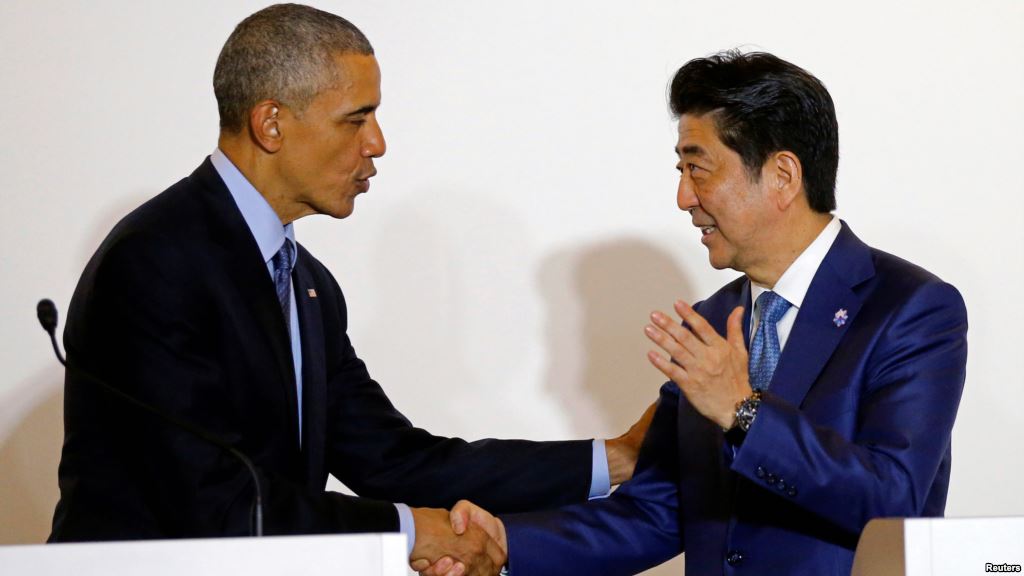
Reporting Crime
[ad]
Crime reporting in Japan takes on a new dimension considering how statistics, truths, half-truths, omissions and lies are used to justify policies, stereotype foreigners and create fear amongst its inhabitants all in the name of keeping Japan safe. The same can be said of other nations, but this article focuses on Japan. Take this half-truth of Okinawa Gov. Takeshi Onaga as reported by Adelstein:
Onaga has claimed that U.S. military, contractors, and their families covered under the Status of Forces Agreement have committed 5,896 crimes since 1972. What he doesn’t point out is that government figures show Okinawa’s populace has a crime rate more than twice as high over the same period—69.7 crimes per 10,000 people, compared with 27.4 by SOFA members. The Okinawa Prefecture Police will not release statistics allowing for specific crime comparisons, further obscuring the matter.
My thesis, Lost in Translation: U.S. Forces and Crime in Japan, examines the media's pattern of disproportionate attribution of crime to USFJ and affiliated personnel in Okinawa. Although it has been proven time and time again that the USFJ crime rates are low, very low, even when compared to already low crime rates in the country, the misinformation campaign stating otherwise continues.The thesis looks at the media's over-attribution pattern in a broader, Japanese-wide context of over-attribution of crime to non-Japanese residents. It then discusses further explanatory factors rooted in Okinawa’s socioeconomic and political circumstances themselves, including not only the perceived disproportionate hosting burden that Okinawa shoulders for U.S. military bases, but also political and media incentives in Okinawa that lead local political actors to emphasize these burdens without fully challenging or removing them.
Why Does This Matter?
As amplified by the recent USFJ crimes in the media, this topic is important to both American and Japanese interests. The U.S.–Japan security alliance is considered the cornerstone of peace and security in the Asia-Pacific region, and the Asia-Pacific region is in turn increasingly crucial to U.S. interests in general.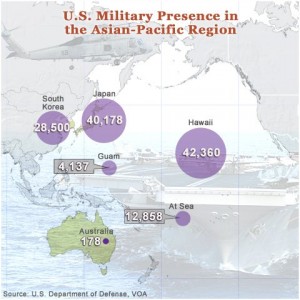
[youtube]https://www.youtube.com/watch?v=ABgRQWXuzl0[/youtube]
How does Okinawans Feel About the U.S. in Japan?
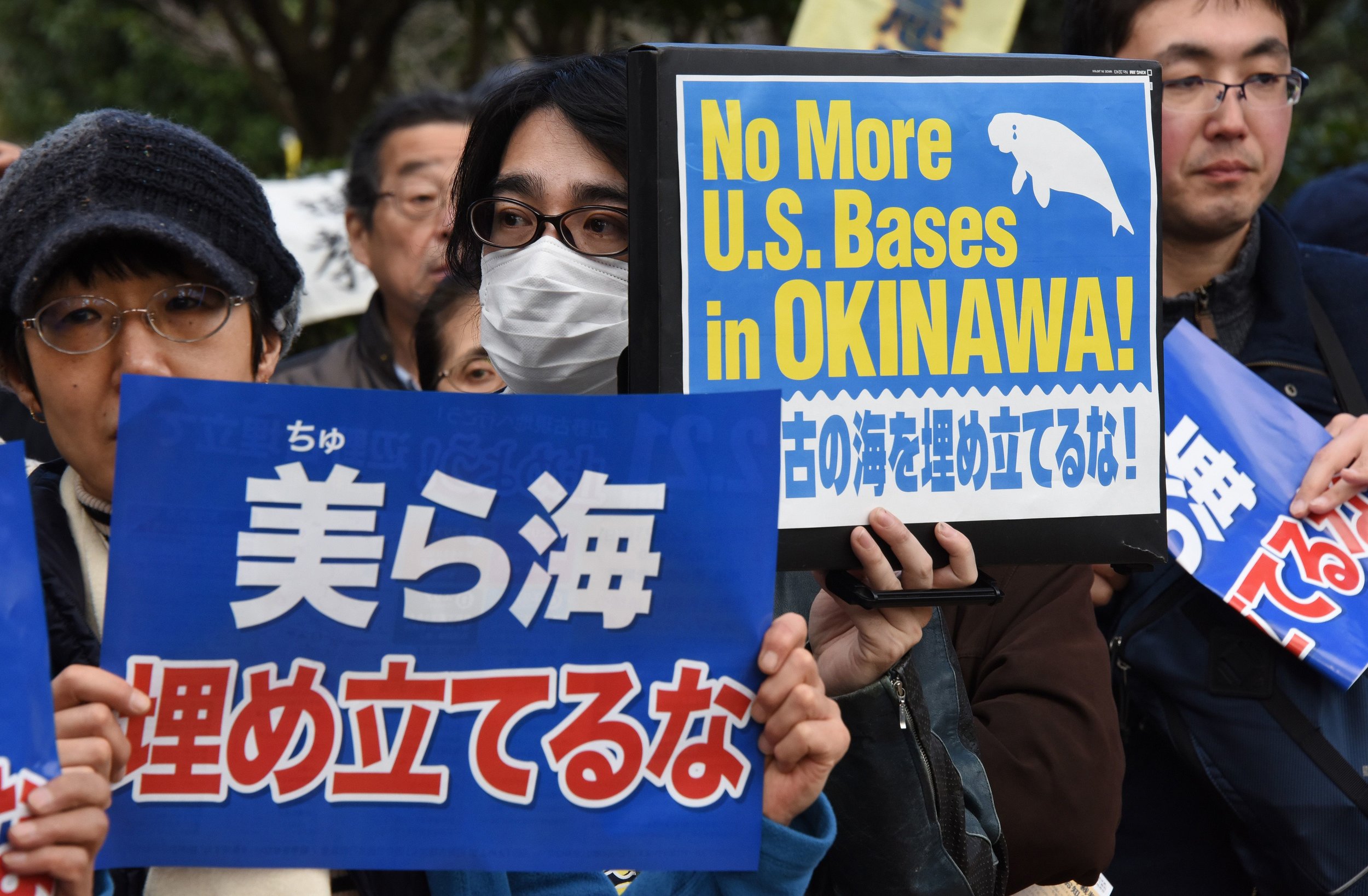
Amid claim and counterclaim by activists and politicians over the planned relocation of the U.S. Marine Corps Futenma Air Station, one factor is often ignored: what ordinary Okinawans think about the move.
An Okinawan Times poll 0f 610 respondents "found that 76.1 percent of residents are opposed to “the construction of a new base” off Henoko in Nago as a replacement for the Futenma base."74 percent of Okinawans in a Ryuku newspaper opinion poll said that the bases in Okinawa are necessary for national security.
What's the Crime Rate?
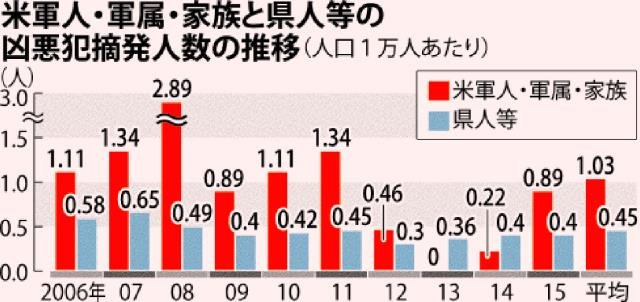 [ad]
[ad]
It was reported, for example, that the USFJ does not release data on crimes committed on U.S. bases. This is false! An immediate red flag in looking at the year 2011 referenced on the graph above, for example, is that it is known, hence reported, that there were 67 cases of sexual assaults reported on USMC bases located on Okinawa between October 2010 and September 2011.Based on my research using data submitted from the USFJ, Okinawa Prefectural Police, National Police Agency (NPA) and English and Japanese language newspapers, I found that the average SOFA annual criminal defendant rate in Okinawa was 67 defendants, representing all branches of service, in 73 cases tried per year based on a twenty-year span of data for the period of 1990–2010.USFJ civilians comprised 35.5 percent of all defendants and USFJ military personnel comprised the remaining 64.2 percent of defendants during the period shown.At the time of my research, Okinawa was home to approximately 75 percent of USFJ facilities. There was a population of 1.37 million people in 2006, of which 6,808 were non-SOFA status foreign residents. According to Michael Hassett, 4,188 people were arrested for penal code offenses and 605 arrested for special law violations. Of that group, 44 non-SOFA foreigners were arrested for penal code offenses and an estimated 22 for special law violations. This equates to an arrest rate of 0.342 percent for Okinawa.Meanwhile, among the 42,570 USFJ SOFA-covered individuals in Okinawa, there were 63 SOFA personnel arrested for penal code offenses and approximately 11 arrested for special law violations (Hassett reported that on base arrest data was not released). This represents a 0.174 percent arrest rate of USFJ individuals, or nearly half the rate of Japanese arrested in Okinawa (0.342) and the whole of Japan (0.351).Perhaps most important, “There were zero arrests in Japan of SOFA sponsored personnel for rape or sexual assault during 2006 versus an average of 16 Japanese arrested daily for rape (1,094 persons) and sexual offenses (4,733).” What does the chart above represent? I believe there are 18 types of crimes used in for data collection. It was mentioned during a Facebook discussion that "certain groups don't give a damn about rape except when the heinous crime is committed by outsiders!"The NPA 2006 report shows 384,250 penal code offense arrests (for crimes such as assault, murder and theft, etc.) included 14,418 non-Japanese, 211 non-SOFA Americans and 120 SOFA covered personnel. 72 Illegal immigrants comprised 13.2 percent of the foreign penal code offenses.73 Out of 83,147 individuals arrested for special law violations, 12,303 were non-Japanese, 84 non-SOFA Americans and 25 SOFA covered personnel.According to the NPA’s annual criminal statistics released on February 12, 2008, which included incidents on Okinawa Prefecture, male USFJ personnel committed 53 crimes per 10,000 USFJ personnel as compared to the Okinawan male’s 366 crimes committed per 10,000. This represents a USFJ crime rate only 14 percent as large as the Okinawa rate.One of the statistics that jump out at me is the 2011 1.34 vs .045 crime rate comparison. This also leads me to conclude that the data shown in chart above is questionable.On average there were 323 defendants represented in 422 penal-code cases resulting from 1,034 reported Okinawa-wide crimes monthly during the 2011 timeframe. Felonies and violent crimes dropped 28.8 percent and 20.9 percent, respectively, during the period.Also according to data obtained from the OPP, Okinawans accounted for 98.7 percent of the defendants who committed penal code violations in 2011.When compared to the total population of Okinawa, the percentage of people committing crimes is relatively low, at 0.27 percent, or 3,876 persons out of a population of 1,404,878. Of that, 51 USFJ SOFA-sponsored defendants made up of military, civilian employees and contractors committed 1.30 percent of the 0.27 percent of the Okinawa-wide crimes.In looking at 2011, overall there were 281 fewer penal code violations committed Okinawa-wide and 20 fewer SOFA-sponsored personnel charged with penal code crimes than the year prior. Key changes were a 67 percent decrease in the number of defendants for violent crimes and a 48.3 percent decrease in larcenies.In FY-11, Q1, for example, SOFA personnel comprised approximately 3.5 percent of the population of Okinawa, which represented a minimal 1.3 percent of all defendants. These defendants represented less than 0.5 percent of the overall 0.27 percent of local nationals who were charged in penal and non-penal cases in Okinawa.27 SOFA members were arrested out of a prefecture-wide total of 3,410 in 2014. There were 38 SOFA personnel arrested in 2013. As in the previous year, 10 total SOFA personnel arrested were on active duty, according to the OPP.The Okinawa Prefectural Police made 3,410 total arrests in 2014. Overall, SOFA members on Okinawa committed 29 crimes in 2014, as opposed to 32 the year before. In 2014, one U.S. Marine was arrested for rape, the charge was however dropped by Japanese prosecutors. No SOFA members were arrested for rape or other heinous crimes such as murder, robbery and arson in 2013. SOFA members arrested for crimes such as extortion or assault decreased from seven, the year before, to four.Of course, this information is not provided to soften the impact or image of a crimes committed by USFJ personnel, I am just doing my part to hopefully provide an open and accurate rest of the story. Without the rest of the story, proper dialogue and solutions cannot exist.
Where Do We Go From Here?

